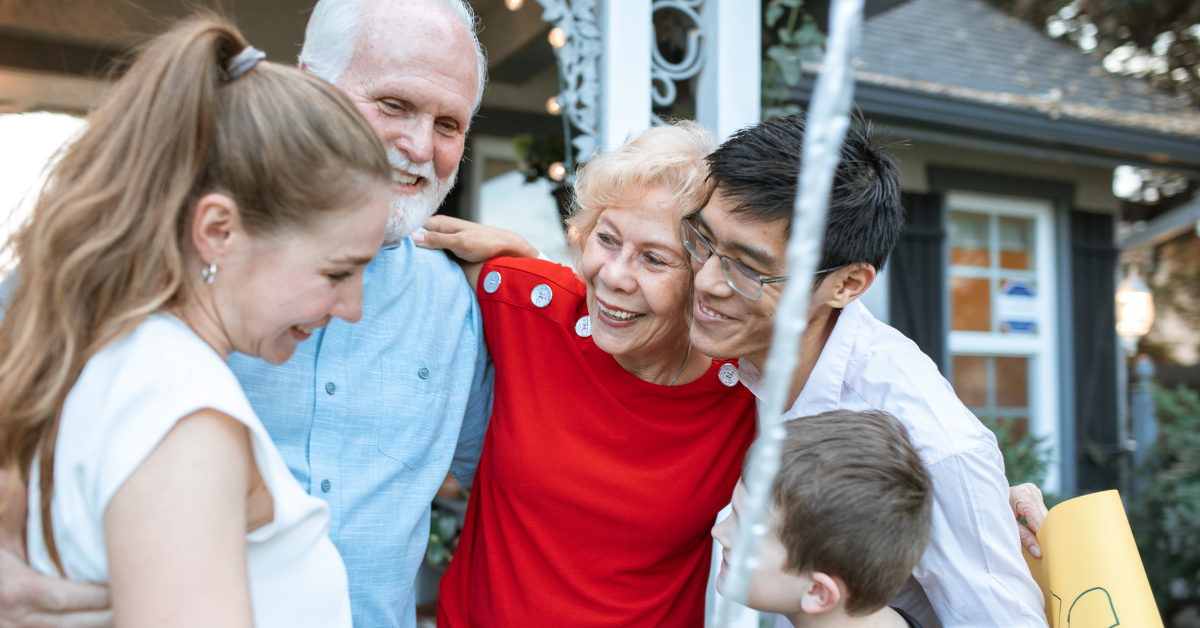
Why Am I So Sensitive? Your Childhood Might Hold the Answer

*Collaborative Post
Adults who are emotionally intense, have rejection sensitivity, or chronic overwhelm might trace these patterns back to their childhood. The way they were responded to as children, whether with warmth or dismissal, shapes how they process emotions, trust others, and handle stress later in life.
What is this powerful link between emotional sensitivity and childhood experiences? How does early caregiving affect the nervous system? What sensitivity can look like in adulthood? And how to manage it with more compassion?
If you’ve ever felt “too much” for the world around you, answers to these questions might interest you.
How Childhood Impacts Sensitivity
Some people are simply more sensitive than others by nature. But sensitivity is rarely just about temperament. How safe, seen, and soothed we felt as children has even more to do with how we feel emotions.
How do we even measure sensitivity if we experience it internally? One way to discover your emotionality is to take a childhood trauma quiz, which may help reveal how emotions show up in non-obvious ways. All of our feelings are subjective, so it’s nice to have a tool that will make us feel seen and validated.
If you’ve ever asked yourself, “Why am I so sensitive?” The answer may lie in how your childhood shaped your emotional wiring. When children grow up in an environment that supports emotional expression, they learn to manage strong feelings without shame. But if their emotional world is ignored, they may grow into adults who can’t name what they feel.
Connection between Warm Caregiving and Emotional Stability
Not all sensitivity comes from trauma. In fact, being emotionally sensitive and perceptive is healthy. Ecological emotionality, though, is the result of a secure, emotionally responsive upbringing.
In childhood, all people have is emotion. That’s why so many toddlers throw tantrums, some children are very self-confident, and some don’t want to let go of their favourite toys. When caregivers consistently comfort and validate a child’s happy and sad feelings, the child’s nervous system learns that emotions are safe to feel [1].
Emotionally sensitive adults who know how to regulate feelings don’t wonder, “How to stop being sensitive?” They are more likely to have experienced secure emotional mirroring. This technique is used when parents explain to a child how they are feeling, especially in moments of strong emotional frustration.
For example, if a baby cries because they are refused to buy something, a supportive parent might say something like, “I see you’re sad because we can’t buy this right now. It’s okay to be sad and cry.” [2]. Children who have experienced such events while growing up are more likely to have emotional regulation skills, higher self-esteem, and greater resilience.
When Childhood Involves Emotional Neglect, Criticism, or Chaos
Now contrast that with another type of childhood. The one filled with unpredictability, dismissal, or pressure to “get over it.”If emotions can get control of you, the answer to the question “Why am I so sensitive?” might lie in your childhood home. What would this home look like?
- Children’s emotions could be ignored or punished. For example, a son could have been forbidden to cry because “crying is for girls.”
- Responsible caregivers could have been in a strained relationship with frequent conflicts.
- Children in such homes could have been expected to take care of others’ feelings before their own. For example, if parents complained about one another to a child, their son or daughter served as an emotional outlet for them, even though the roles should have been reversed.
In these environments, sensitivity becomes a survival tool. A child learns to constantly scan for danger, read moods, or suppress feelings to stay safe [3].
How Positive vs. Negative Childhood Experiences Show in the Sensitivity of Adults
Let’s look at how this shows up side-by-side. Emotional sensitivity isn’t a problem. Feeling and being empathetic towards others means you’re intuitive and deeply aware. But the experiences you had in childhood define whether sensitivity feels like a valuable skill or something to manage daily.
| Area | Supportive Childhood | Wounding Childhood |
| Response to Criticism | Able to reflect, manage feelings | Feels devastated, spirals into shame |
| Emotional Expression | Comfortable sharing emotions | Feels guilty, ashamed, or fears being judged |
| Reactions to Stress | Gets overwhelmed but uses tools to cope | Becomes flooded, freezes, or lashes out |
| Relationship Boundaries | Can say no without guilt | People-pleases, or avoids intimacy entirely |
| Self-Worth | Feels worthy even after mistakes | Feels “not enough” or fears being “too much” |
| Recovery from Conflict | Takes up space and repairs with ease | Obsessively replays or fears abandonment |
What Does High Sensitivity Look Like in Adults?
Being emotionally sensitive is not only about crying easily or taking things personally. High sensitivity in adults might be mislabeled as weakness, overreacting, or being “dramatic.”
Psychologist Elaine Aron, who pioneered the term Highly Sensitive Person, described sensitivity as having a more finely tuned nervous system. It’s not a flaw, it’s a different way of experiencing the world.
Here are common ways high sensitivity might show up in adulthood:
Emotional Reactions
- Emotionally sensitive people tend to replay conversations for hours. They might try to understand if they said something wrong as part of constant scanning for threats.
- Constructive feedback feels deeply personal, even if it’s well-meant. Emotional sensitivity sits deep in the nervous system, and even if the brain can comprehend how our work can be improved, something inside still tingles.
- Watching the news or hearing someone else’s pain can be emotionally exhausting. It’s like living through all the negativity you hear around you. Although it might seem like deep empathy, empathy shouldn’t drain.
- Some people with high sensitivity can describe their thoughts as rich, layered, and constant. They believe they have more thoughts or deeper ones than others.
Sensory Sensitivity
- It’s possible that emotional sensitivity means that you’re sensitive in general. In this case, bright lights, loud noises, and crowded environments may feel overwhelming to you.
- You can notice tiny shifts in someone’s tone or energy before they even speak. Once again, due to constant scanning in childhood, a person can learn how to read subtle cues of body language and learns other people’s movements.
Signs in Relationships
- Every feeling with your significant other is intense. Love is omnipresent, but so is hurt.
- Conflict is not perceived as an opportunity to discuss more profound topics. Even the most minor disagreements can feel like abandonment.
- Although emotionally sensitive might crave closeness and intimacy, being around with other brings so much emotion they isolate. It’s one of the ways they avoid overwhelm.
How to Stop Being Sensitive
The answer to this question is not as easy, and it may not be what you’re looking for. You don’t have to stop being sensitive. Sensitivity can be a strength because it allows for deeper empathy, creativity, and emotional depth.
But if your sensitivity is starting to feel like a weight you carry alone, there might be some ways to ease its impact and feel more grounded in everyday life.
- The first technique is to ground yourself in the present. Emotional overwhelm may feel like our mind disconnects from our body. That’s why body-based techniques like deep breathing or stretching can help you reconnect with yourself.
- Second, try building emotional boundaries. Not every emotion you feel is yours to carry. Learn to notice when you’re absorbing other people’s moods or expectations. Learning to say no without guilt can help with that, especially when your nervous system feels overloaded.
- Third, ask yourself questions. For example, “What is this feeling trying to tell me?” rather than “Why am I like this?” Journaling is a nice technique to reframe sensitivity into insight because it allows you to trace your triggers to reactions.
Some additional tips to try are to prioritize sleep, breaks, and quiet time, even when life feels busy. Trackers can show you the progress you’ve made. But if nothing seems to help and you still feel overwhelmed, it’s okay to refer to a specialist, who can give you professional advice.

In closing
If you’ve ever wondered, “Why am I so sensitive?”, you’re not broken. You may simply be carrying responses shaped long ago, in childhood. Sensitivity is not a flaw to fix, but a characteristic to understand. Whether it stems from warm care or painful experiences, how we were treated growing up shapes how we move through the world now.
By recognizing your emotional reactions, you gain the power to respond rather than just react. It’s never too late to feel safer in your own emotions. With self-awareness, boundaries, and the right support, sensitivity can become a strength.
*This is a collaborative post. For further information please refer to my disclosure page.




